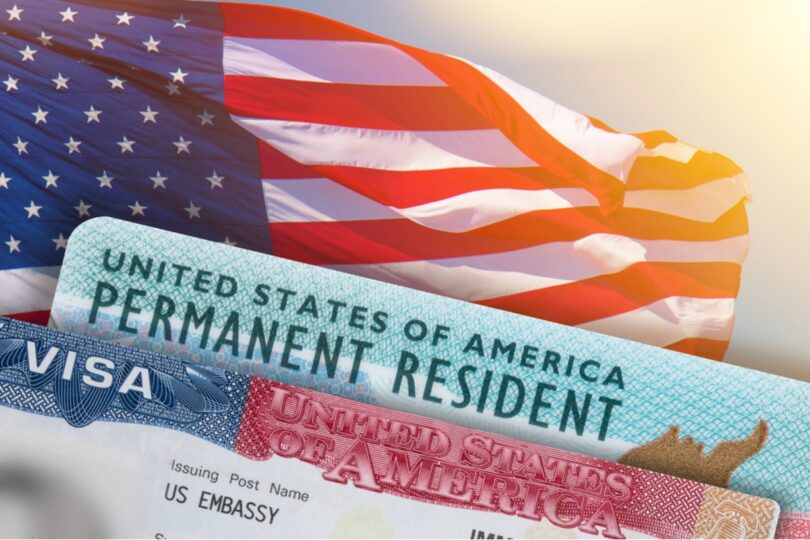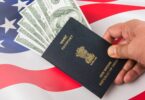The EB-5 visa category allows foreign nationals to obtain permanent residency in the United States by investing a minimum of $500,000–$1 million in a commercial enterprise that creates or preserves at least 10 full-time jobs for U.S. workers. In addition to the investor, the EB-5 visa also allows their spouse and unmarried children under 21 to obtain conditional permanent resident status based on the investment.
Advertisements
While the primary EB-5 applicant invests in a job-creating business venture, their spouse and children are considered derivative applicants who receive status through the main EB-5 investor. In this article, we will explore the process of sponsoring your spouse or partner for an EB-5 derivative visa, including eligibility requirements, application procedures, interviews, and eventual removal of conditions on permanent residency.
Eligibility Requirements for Derivative Applicants
There are a few key eligibility requirements that must be met in order for a spouse or partner to be sponsored as a derivative applicant through the EB-5 program:
- Legal Marriage: The primary EB-5 investor must be legally married to their spouse at the time of filing. Partners in a common-law marriage or civil union may also qualify. Divorced or separated spouses do not.
- Unmarried Children Under 21: Unmarried children under the age of 21 are also eligible to obtain derivative status as dependents of the primary investor. Once a child turns 21, they are no longer eligible to be included on the EB-5 petition.
- Relationship Exists at Time of EB-5 Investment: The familial relationship between the primary investor and derivative applicant(s) must have existed at the time the EB-5 petition was filed with USCIS and the required investment was made into the job-creating business. Individuals who get married or have children after EB-5 approval will have to file separate petitions.
- Derivative Applicant Must Keep Qualifying Relationship: The derivative applicant must continue to meet the familial relationship requirements, such as maintaining a legal marriage, throughout the EB-5 process in order to remain eligible for derivative status. Changes like divorce or a child aging out of eligibility will impact their ability to receive residency benefits through the EB-5 investor.
- Admissibility Requirements: Like the primary EB-5 investor, derivative applicants are subject to standard immigration eligibility checks and must not be inadmissible due to criminal convictions, prior immigration violations, health issues, security threats or being likely to become a public charge. Waivers are available in some instances.
- Financial Ability: Derivative applicants are not required to prove individual investment capital or job creation, but must demonstrate they will not become public charges relying on government assistance programs.
The EB-5 Application Process
Once investment funds have been placed in the approved job-creating business venture, the next step is filing Form I-526, Immigrant Petition by Alien Entrepreneur, with USCIS. This petition can include derivative family members at the outset:
Advertisements
- Form I-526 petitions must be properly filled out with biographical information for both the main EB-5 investor and derivative applicants. This includes civil documents evidencing qualifying relationships.
- Required fees are submitted along with Form I-526. There are additional fees for each derivative applicant included with the petition.
- Necessary evidence is compiled to prove the job-creation investment meets all EB-5 requirements. This will later be examined during the adjudication process.
- Upon approval of Form I-526, the main EB-5 petitioner and included derivatives will receive conditional permanent residence valid for two years.
Adjustment of Status vs Consular Processing
Once conditionally approved, there are two potential paths forward to obtaining unconditional permanent residency:
Adjustment of Status: If living in the U.S. at the time of approval, Form I-829 to Remove Conditions can be filed before USCIS without leaving the country. This route allows for remaining in America throughout the process.
Advertisements
Consular Processing: If overseas upon approval, the family will be scheduled for an immigrant visa interview at the U.S. consulate where they intend to permanently reside. Immigrant visas are received before entering the U.S. as permanent residents.
Derivative Visa Interview
All family members of the main EB-5 investor—including minor children—are required to participate in an immigrant visa interview conducted by immigration officials. The goals are to verify relationships, properly document eligibility and screen for any potential inadmissibility issues.
At the interview, individuals should expect:
- Identification documentation for each applicant to be collected and reviewed. This includes passports.
- Verification of qualifying familial relationships through marriage certificates, birth certificates, etc.
- Background checks are run on all applicants to ensure eligibility to receive green cards.
- Questioning on relationships, family structure, investment project details, and plans upon living in America. Honest and complete answers are vital.
- Collection of biometrics like fingerprints.
- If approved, immigrant visas are printed and received before entering the U.S. as conditional permanent residents.
It’s crucial that derivative applicants attend their visa interview prepared with all necessary documentation and able to answer questions honestly about family ties and immigration intentions. Not attending or failing an interview can jeopardize their EB-5 visa eligibility.
Form I-829 Filing
Just before the two-year conditional permanent resident period expires, the main EB-5 investor must file Form I-829 to Remove Conditions on Residence with USCIS. This final step verifies that:
- The full qualifying EB-5 investment was maintained throughout the period.
- The business venture has created or preserved the necessary 10 jobs for U.S. workers as promised.
- The EB-5 investor and family remain eligible through continued marital or familial status.
- No conditions of inadmissibility have developed during the two years that could impact the approval.
If Form I-829 is approved, permanent resident status is granted unconditionally and employment authorization is extended indefinitely. At this point, the EB-5 financier and family members are considered fully-fledged lawful permanent residents.
Continuing Eligibility for Derivatives
Throughout the entire EB-5 process, it’s imperative that derivatives remain continuously eligible. Marriages must be legally intact, children cannot age out, and criminal conduct or other issues cannot trigger grounds of inadmissibility.
If a disqualifying event occurs, such as divorce finalized before EB-5 approval, children turning 21 years old, or criminal charges accrued, it could make derivative applicants ineligible for benefits tied to the EB-5 investor. The sponsorship relationship must be maintained.
In some circumstances with extreme hardship, humanitarian factors, or public interest exceptions, it may be possible to request a waiver for issues like brief marital separation. However, the waiver process introduces complexity and is not guaranteed. Overall, continuous eligibility provides the safest path.
Other Family Sponsorship Options
It’s worth noting that derivatives are not the only route for an immigrant to legally sponsor family members. Other common visa categories include:
- Marriage-Based Green Cards (IR-1/CR-1 for spouses of U.S. citizens)
- Family-Based Preference Visas (F2A for spouses/children of lawful permanent residents)
- Diversity Visa Lottery (yearly random selection program for eligible nationals)
While these options provide permanent residency outside the EB-5 program, derivatives enjoy automatic status through the main petitioner’s approved investment. Their legal immigration process is more streamlined without standalone filing required.
Obtaining Citizenship for Derivatives
Once permanent residency is attained through the EB-5 process, immigrant investors and derivative family members are on a path to U.S. citizenship. The standard process involves:
- Continuous residency as a permanent resident for at least 3 years and physical presence in the U.S. for half that time. Time as a conditional resident counts.
- Demonstrated understanding of English and civics through the citizenship exam. Study materials are available.
- Clear background check and clean immigration compliance record.
- Evidence of good moral character including payment of taxes and no criminal convictions.
- Submission and approval of Form N-400, Application for Naturalization.
- Participation in a citizenship ceremony to take the Oath of Allegiance.
At this point, derivatives are awarded full U.S. citizenship with the rights and privileges of any native-born citizen, such as the ability to vote and apply for additional family sponsorship.
Frequently Asked Questions
Here are answers to some common questions about sponsoring family members through the EB-5 visa program:
Q: Can unmarried partners qualify as derivatives?
A: Only legally married spouses qualify automatically. Some same-sex marriages or common-law relationships may be eligible if recognized in the location where the couple resides.
Q: Can adult married children be sponsored?
A: No, only spouses and unmarried children under 21 years old qualify as EB-5 derivatives. Adult married children must pursue their own immigration process.
Q: What if we divorce before the process is complete?
A: Divorce ends a spouse’s derivative eligibility. Unless extreme hardship or other waivers apply, the ex-spouse’s petition would be terminated upon relationship dissolution.
Advertisements






